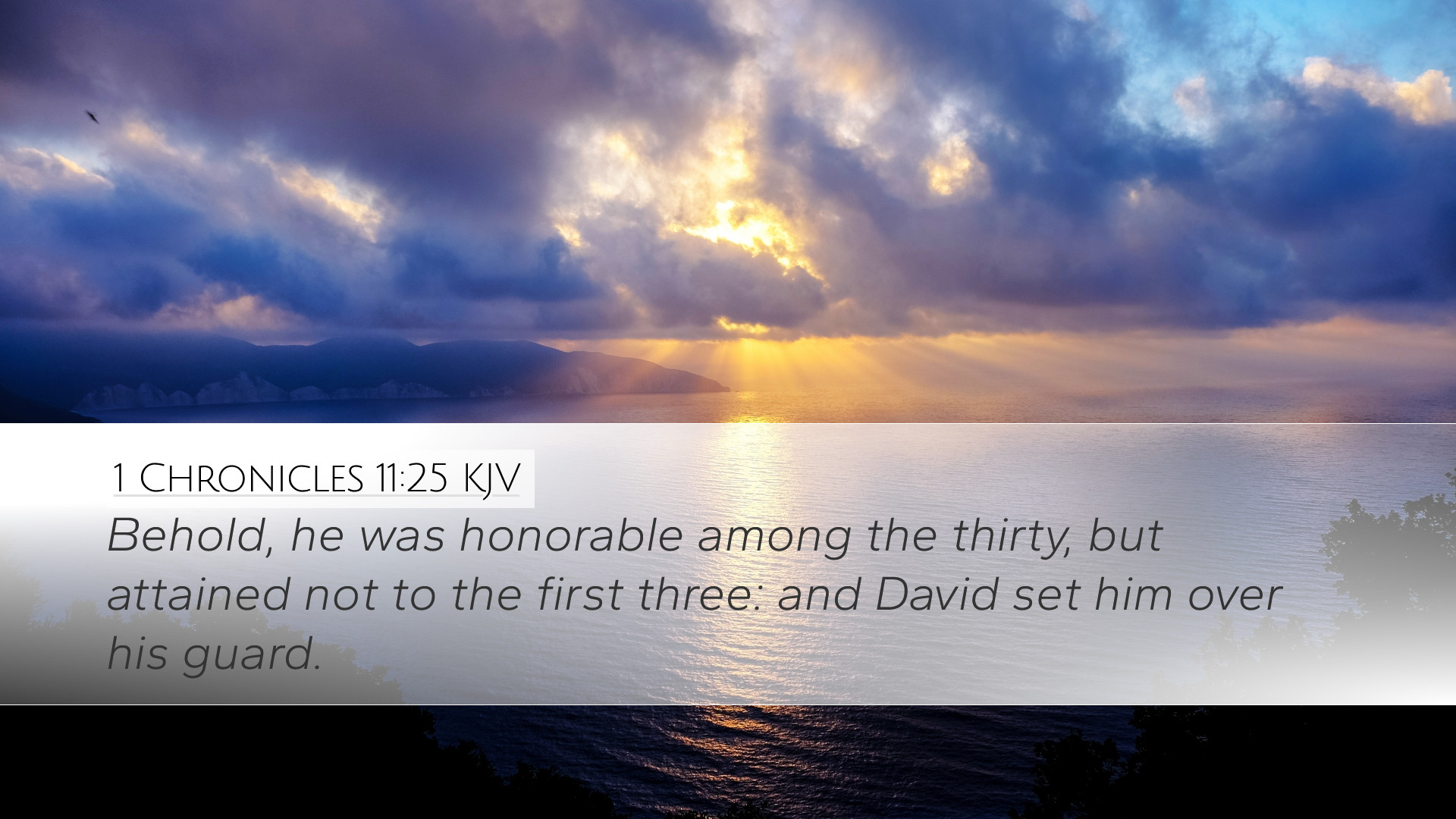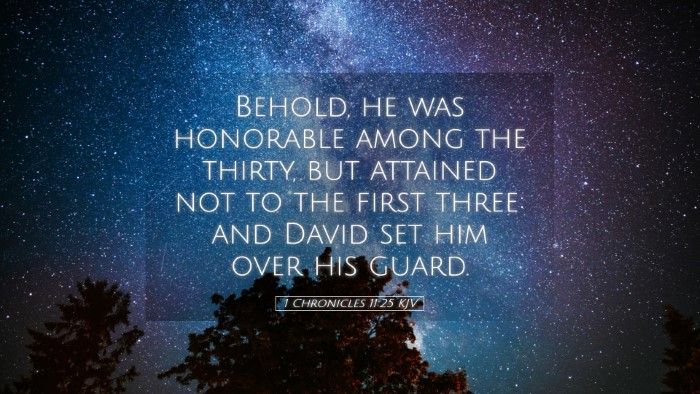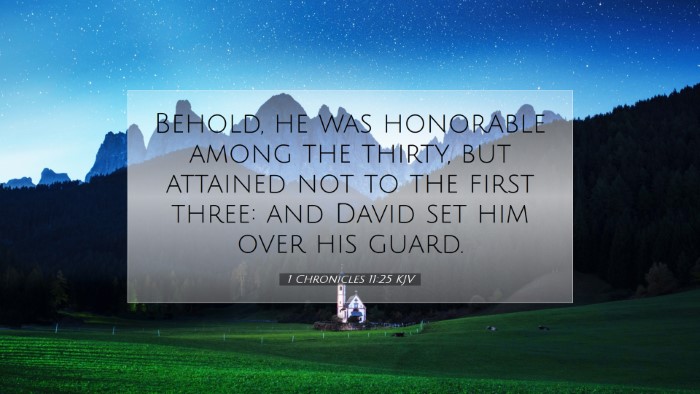Commentary on 1 Chronicles 11:25
Verse Context: 1 Chronicles 11:25 states: “Behold, he was honorable among the thirty, but attained not to the first three: and David set him over his guard.” This verse is part of a larger narrative that chronicles the mighty men of valor who served King David, emphasizing their valor and loyalty in times of conflict.
General Overview
This verse highlights the esteemed position of a warrior among David's mighty men—the “thirty.” Although he was recognized as honorable, he did not reach the highest tier represented by the “three,” reflecting a hierarchical yet inclusive approach to leadership and service within David's administration. This sets a tone for understanding the importance of camaraderie, recognition, and the dynamics of leadership in scriptural narratives.
Commentary Insights
Matthew Henry's Perspective
Matthew Henry, in his exposition, elucidates the significance of this verse by connecting it to the broader theme of David's leadership. He notes:
- Honorable Position: The warrior mentioned signifies a distinction among the thirty; he is recognized yet remains humble, emphasizing the virtue of honor in servitude.
- Comparison with the Three: Henry suggests this implies levels of achievement and recognition within a community of faithful servants—a reminder that while some may hold more prominent positions, every contribution is valuable.
- Leadership Over Guard: His appointment to guard duty signifies trust and responsibility, pointing to the qualities David looked for in his leaders.
Albert Barnes' Commentary
Albert Barnes enhances our understanding by focusing on the implications of being among the mighty men:
- Recognition of Valor: Barnes emphasizes that being "honorable" among the thirty indicates stature derived from proven valor and loyalty, outlining the merit-based nature of David's aggregation of warriors.
- Critical Role of the Guard: He draws attention to the guard’s role, symbolizing the defense of the king and his kingdom, which underscores the capacity of loyalty in times of potential danger.
- Diversity in Service: The verse reflects the diversity within David's warriors—each member, regardless of rank, played a crucial role in the entire structure of military success.
Adam Clarke's Insights
Clarke’s commentary affirms and expands upon the importance of community and relationship within these verses:
- Communal Identity: Clarke points out that the “thirty” serves to create identity and belonging, which is essential for cohesion among those committed to a common purpose—supporting their leader David.
- Contrast to the Three: He notes that while honor is given, there is also a clear distinction among ranks, which serves to motivate through an understanding of excellence and dedication.
- Divine Order: Clarke suggests that this careful organization of David’s men reflects a divine order, where God assigns roles according to ability and faithfulness.
Theological Implications
This passage invites reflection on leadership dynamics, the value of one’s role in ministry, and the significance of honor in community. Important theological themes emerge:
- The Nature of Honor: Honor is not merely derived from position but from character and service, offering a critical lens through which to assess leadership in both spiritual and secular realms.
- God's Sovereignty in Leadership: God places individuals in positions of leadership based on faithfulness and ability, suggesting that divine purpose operates within human choice and agency.
- Community and Covenant: The passage reinforces the idea of community responsibility in covenantal relationships, where every member's contribution is vital for the health and effectiveness of the whole.
Application for Contemporary Ministry
For pastors, students, theologians, and Bible scholars, this passage provides several considerations for application:
- Establishing Honor: Leaders in ministry should strive to cultivate honor through integrity and service, recognizing that respect is built over time through consistent actions and commitment to God's people.
- Valuing Contributions: It is crucial to acknowledge the varied contributions of each member of the church body, understanding that while some might hold visible roles, every task serves the greater mission of the church.
- Creating a Healthy Community: Just as David organized his fighters, contemporary leaders should focus on building a community where individuals feel valued and connected, reflecting Biblical models of unity and purpose.
Conclusion
1 Chronicles 11:25 serves as a microcosm of the wider narrative concerning leadership, valor, and community within the Scriptures. The combined insights from public domain commentaries reveal the depth of meaning within a simple acknowledgment of a warrior's rank. This passage can inspire meaningful reflection and practical application for those in ministry today as they seek to lead with honor and purpose in alignment with God's calling.


